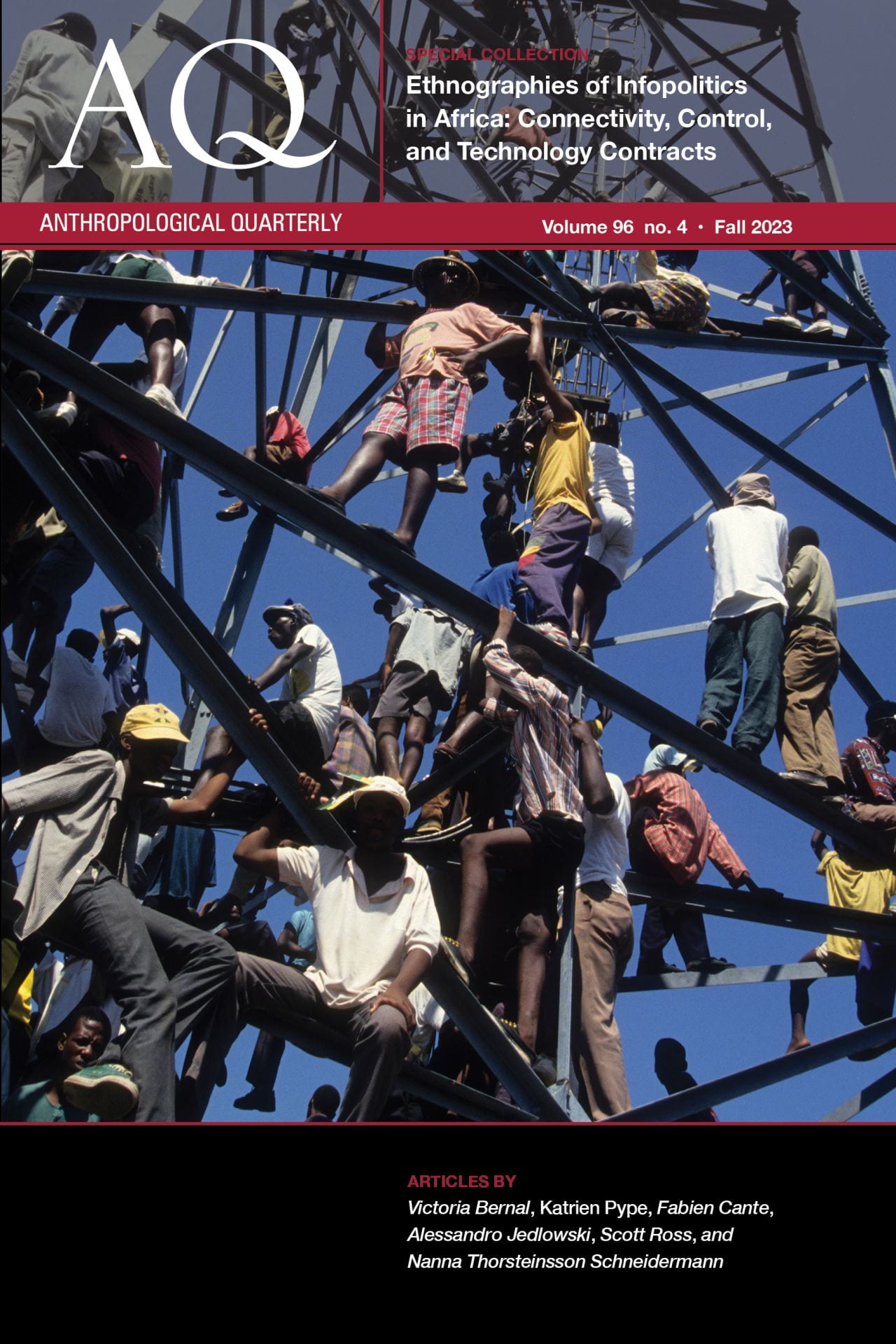
S. Africa, ANC Rally, Zulus Durban, March 1994. © 1994 Tomas MUSCIONICO (Contact Press Images)
TABLE OF CONTENTS
Vol. 96, No. 4
SPECIAL COLLECTION
ETHNOGRAPHIES OF INFOPOLITICS IN AFRICA: Connectivity, Control, and Technology Contracts
INTRODUCTION
Katrien Pype and Victoria Bernal | Infopolitics and Technology Contracts
Alessandro Jedlowski | Screen Media, Technological Innovation and the State in Nigeria
Victoria Bernal | Crazy, Stupid, Lying, Traitors: Eritrean Politics and Extreme Speech Online
Fabien Cante | Attuning to Opacity: Interpreting “Post-Crisis” Refusals on Abidjan’s Local Airwaves
Scott Ross | Remoteness and Connection on a Congolese Humanitarian Radio Network
Nanna Thorsteinsson Schneidermann | The Intimate Infopolitics of Township Sociality in Cape Town: Mobile Phones, Mothers, and Respectability
BOOK REVIEWS
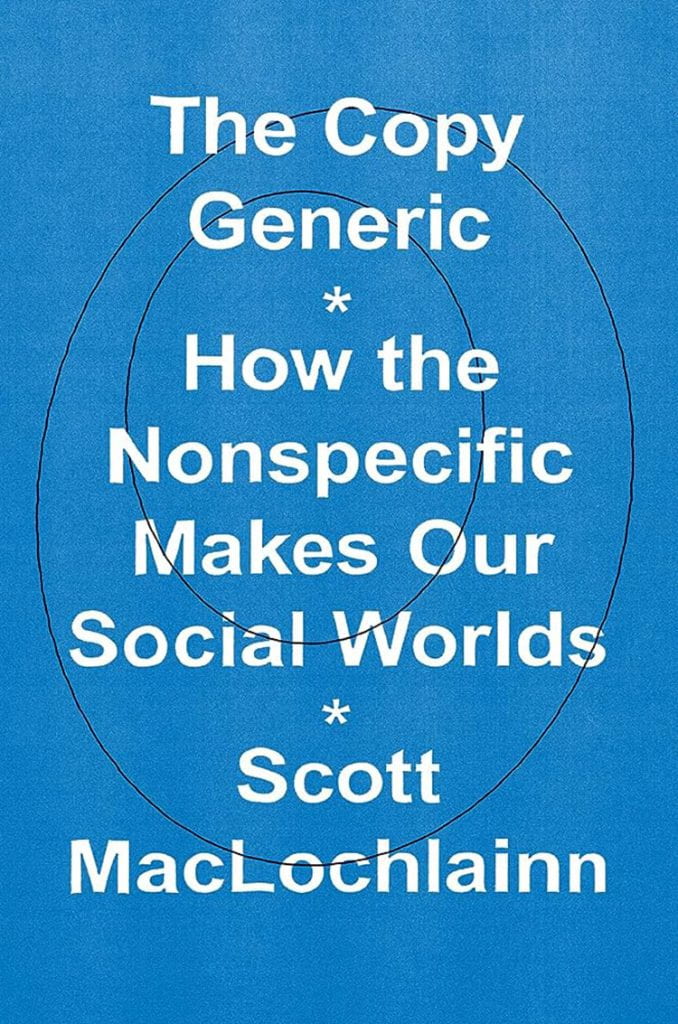
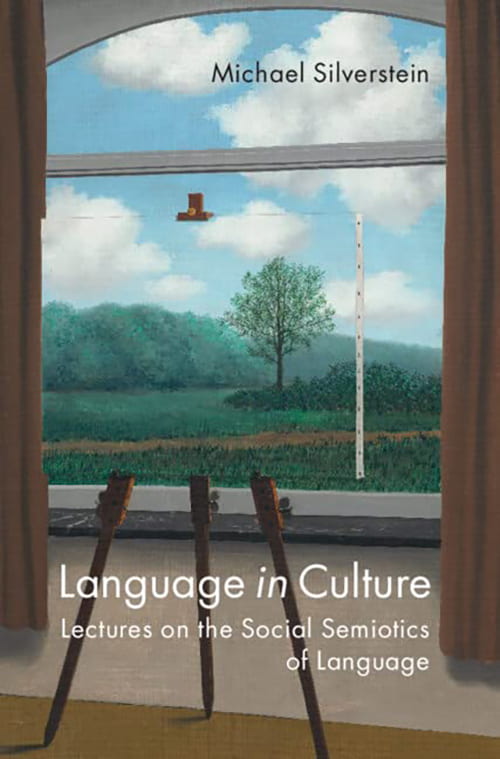
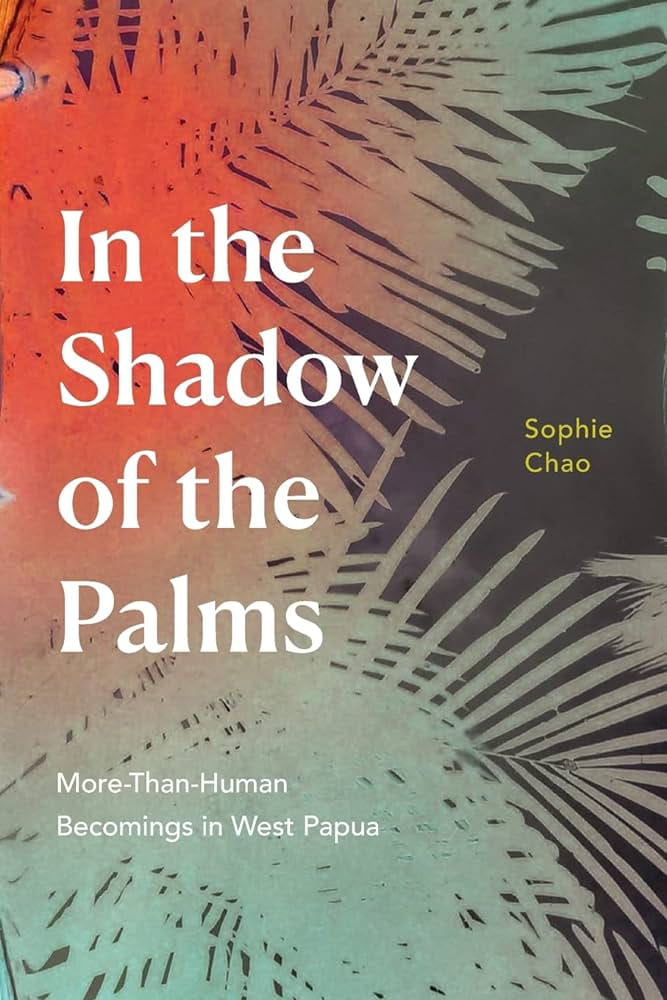
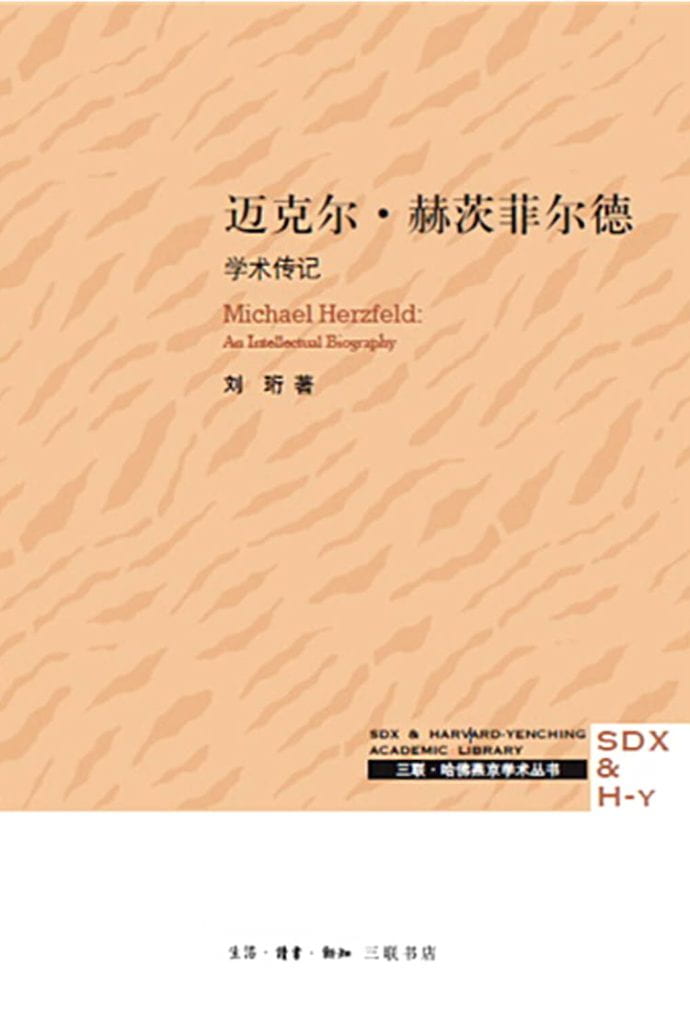
Luke Forrester | Scott MacLochlainn’s The Copy Generic: How the Nonspecific Makes our Social Worlds
Joel Kuipers | Michael Silverstein’s Language In Culture: Lectures on the Social Semiotics of Language
Shweta Krishnan | Sophie Chao’s In the Shadow of the Palms: More-than-Human Becomings in West Papua
Ping-hsiu Lin | Heng Liu’s Michael Herzeld: An Intellectual Biography
FILM REVIEW

David Lipset | Toby Mills and Aileen O’Sullivan’s Whetū Mārama/Bright Star
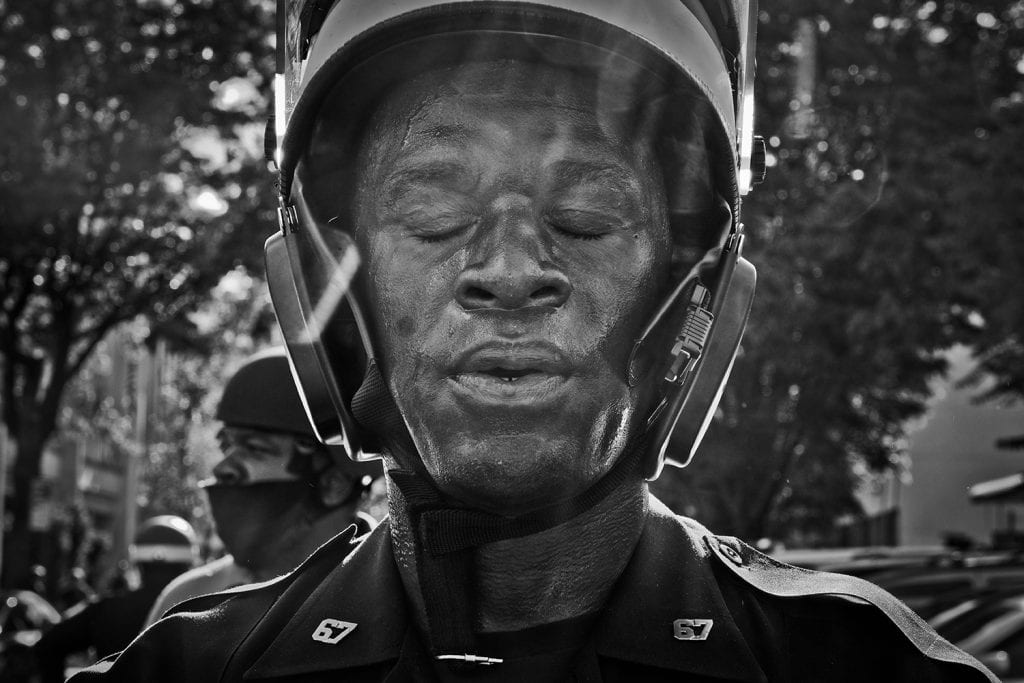
Buy issue through PROJECT MUSE, JSTOR or our ONLINE STORE.
ABSTRACT
Screen Media, Technological Innovation and the State in Nigeria
Alessandro Jedlowski, Sciences Po Bordeaux, France
In this essay, I revisit the history of the emergence and evolution of the Nigerian screen media industry (Nollywood) through the prism of the concept of “infopolitics” to develop an analysis of the interaction between media technology innovation and state control in Africa. After being a key preoccupation during Cold War, the issue of the state’s capacity to control the production and flow of media content and data within its borders has become again the object of controversial debates in recent years, as shown by the multiplication of research on the issue of “digital sovereignty” and “platform capitalism.” By focusing on an African case study to reflect on issues of global relevance, this essay shows how the analysis of African realities can help us in interrogating and complementing theories formulated in relation to western case studies (and generally uncritically applied to other contexts). Combining first-hand ethnographic data to the analysis of the research results of other scholars who have investigated the emergence and growth of Nollywood over the past decades, this essay follows media producers and their relationship to technologies and the state, over a period of forty years, from the introduction of the videotape to the arrival of streaming platforms. In so doing, this research puts into perspective the “presentism” of many recent works, which tend to see the introduction of new digital technologies as the bearer of an unprecedented historical break, and makes an attempt at highlighting the links of continuity and discontinuity between recent transformations and the technological innovations which preceded them. [Keywords: Infopolitics, censorship, screen media, media innovation, platform capitalism, Nigeria, Nollywood]
Crazy, Stupid, Lying, Traitors: Eritrean Politics and Extreme Speech Online
Victoria Bernal, University of California, Irvine
This essay explores the dynamics of extreme speech online in the context of Eritrea’s fraught politics. I find the public sphere that Eritreans in diaspora established on a website as constantly open to collapse and subversion, and thus requiring on-going negotiation among participants. The analysis draws on a close reading of a set of online exchanges in response to a narrative posted on a leading Eritrean news and discussion website. The operation of an open public sphere online is especially significant for Eritreans since there is no right to freedom of expression and no independent media inside the country. In heated exchanges online, people’s identities as Eritreans and their loyalties are questioned in spectacular attempts to silence, intimidate, and exclude certain people or ideas. What I also uncover are the strategies used by some posters and the moderator to assert the value of civil discourse and to keep the public forum open and inclusive. The ways that Eritreans engage in and respond to extreme speech in an online forum are interesting for what they reveal about Eritrean politics, but furthermore shed light on the global issue of extreme speech, digital media, and public spheres. [Keywords: digital media, hate speech, public sphere, politics, diaspora, Eritrea]
Attuning to Opacity: Interpreting “Post-Crisis” Refusals on Abidjan’s Local Airwaves
Fabien Cante, University College London
This article examines how local radio producers in Abidjan, Côte d’Ivoire made sense of audiences’ refusals to speak on the airwaves in the aftermath of armed conflict (1999-2011). Since the 1990s, local or “proximity” broadcasting has materialized contests over popular expression in Côte d’Ivoire. After 2011, local stations also crystallized expectations and anxieties over the role of popular voice in peacebuilding. Drawing on scholarship linking public silences, power, and insecurity, and on Édouard Glissant’s notion of opacity, I emphasize the relationality of audience refusals, as well as producers’ interpretative agency in response. I show that producers deliberately made room for the opacity of refusals by acknowledging the atmospheric pressures of political violence, without making its effects in the social world transparent or determining. I argue that such a practice of attunement – neither witnessing nor denial—preserved opacity as a ground for possible mutuality. [Keywords: radio, Abidjan, voice, refusal, post-conflict, opacity, atmospheres]
Remoteness and Connection on a Congolese Humanitarian Radio Network
Scott Ross, Washington University in St. Louis
In northeastern Democratic Republic of the Congo, local and international non-governmental organizations have, for the last decade, built a network of two-way radios to connect rural communities in order to better protect them from armed groups active in the region. This article moves along this radio network to explore the concepts of remoteness and connection. Rural residents and humanitarians alike describe the region as “enclaved,” drawing on Congolese experiences and conceptions of isolation and vulnerability to appeal for greater connection. The connection offered by radios, however, is fragile and contingent, relying on alignments, negotiations, and compromises. The article describes these negotiations at the village level (among NGOs and various local actors) and between NGOs and the state, demonstrating that connection is a negotiated and ongoing process. [Keywords: Democratic Republic of the Congo, radio, humanitarianism, conflict, remoteness, connection, infrastructure]
The Intimate Infopolitics of Township Sociality in Cape Town: Mobile Phones, Mothers, and Respectability
Nanna Thorsteinsson Schneidermann, Aarhus University / University of Cape Town
How are young women’s access to and the use of mobile media technologies negotiated and distributed at the urban margins of the tech revolution? This article explores questions and contestations of the legitimate use of phones among women living in township areas on the outskirts of Cape Town, South Africa. I introduce the concept of “intimate infopolitics” to highlight how mobile phones are given meaning and negotiated by and through intimate relations and gendered ideals of knowledge and spatial belonging, condensed in the idea of ordentlikheid (respectability). Paying attention to historical political processes and scale in the gendered access and use of digital media invites researchers to recognize questions of sovereignty and power beyond tech-optimistic discourses on gendered empowerment, and to follow the fraught, partial, and ambiguous processes of managing information and knowledge through media. [Keywords: Cape Town, South Africa, mobile phones, infopolitics, intimacy, gender, urban space, respectability.]

